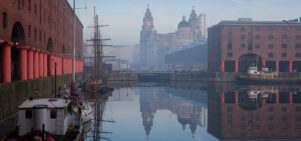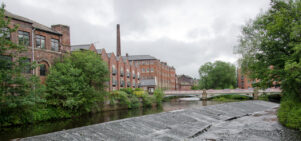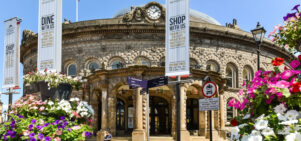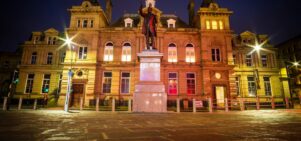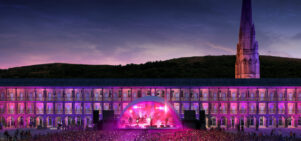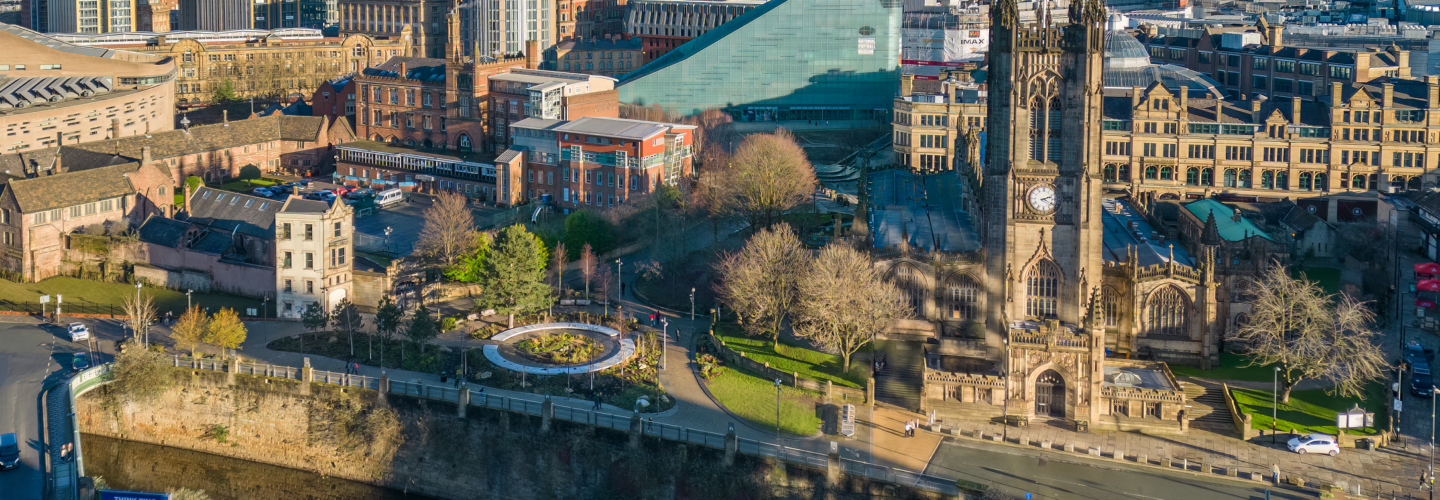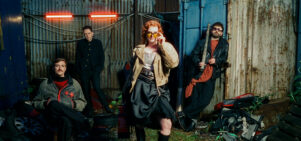Epstein Theatre: Nostalgia ain’t what it used to be
Kevin BourkeEven Liverpool theatre is getting in on the Beatles act; we review its latest addition, the Epstein Theatre and consider the story of Beatles manager Brian Epstein
Nostalgia ain’t what it used to be – these days it’s big, big business. You’re unlikely to have missed the fact, for instance, that this is the 50th anniversary year of a certain band of Liverpool moptops. Yet the world might never even have heard of The Beatles without manager Brian Epstein, whose story has, nonetheless, been relatively overlooked. Until now, that is, with a couple of film projects just announced – one with Tom Hanks in the producer’s chair and another based on a graphic novel.
Both of those are at least a year off but, more immediately, a historic theatre has just re-opened its Liverpool city centre doors as The Epstein Theatre and probably its most significant early show is multi-media play Epstein: The Man Who Made the Beatles. It’s a show that, rather refreshingly, avoids the self-serving myth-making of parts of the Beatles industry to tell the story of a young, cool and powerful gay man “whose presence, taste, vision and passion left a lifelong impact on the world,” as Jen Heyes, one of the show’s creators, points out.
It tells the story of a young, cool and powerful gay man whose vision changed the world
Yet he was also a terribly conflicted and contradictory character whose tragically early death at the age of 32 came just weeks after that of Joe Orton, and only a couple of months before homosexuality was legalized. “The heartbeat of Liverpool is The Beatles but Brian’s life even before he met The Beatles is worthy of a play in itself,” believes Andrew Lancel (Corrie’s Frank Foster), who plays Brian in the production.
“It’s sometimes forgotten just how charming and funny he was,” adds Heyes. “Don’t forget that he was having to make it up as he went along, so what he achieved was especially remarkable. He definitely wasn’t a tortured soul who took his own life.”
The theatre that now bears his name on Hanover Street, just off Bold Street, was immensely popular for decades as The Neptune, a community-based theatre, before falling into disuse in 2005. Indeed, current manager David Pichilingi, who also runs Liverpool’s annual Sound City Music Festival, says that one of his earliest theatrical memories is of “coming down from the council flat where we lived, right above the theatre strangely enough, to see panto here.”
But the 380-seater hall originally opened as Crane’s Music Hall in 1911. “Crane’s music shop was down on the ground floor, where the bars are now. So they built it and actually used this stage and the hall itself to show off their Steinway pianos,” Pichilingi says. “The family wanted it to be a local resource and so it was a popular location for recitals and performances. It was renamed Crane Theatre in 1938 and in 1967 was purchased by Liverpool Corporation, who decided that the theatre should continue as a community resource and be run by local people for local people. It was renamed The Neptune Theatre, so they had to change the ornate ’C’ over the stage to an ‘N’. I don’t think we’ll be changing it to an ‘E’, though. We’ve got more important things to do!”
A £1million refurbishment starting in 2011 concentrated on preserving and enhancing the original theatre – an original gaslight can still be seen in one corner – and rectifying the damage caused by rain on its flat roof. Backstage facilities were brought closer to contemporary standards and a large bar area, now called Brian’s Bar and the home of smaller scale events, was reclaimed from what had become a dumping area.
“Brian himself was a huge fan of theatre, he leased the Saville Theatre in London’s Shaftesbury Avenue and attended RADA for a while. He wanted to be an actor. So it feels fitting for a production celebrating his life to be performed here,” says Pichilingi. “But we plan to showcase cutting-edge art and pop culture events ranging from drama productions to art exhibitions, and also aim to ensure the Epstein can be used by community groups from across the city.”


